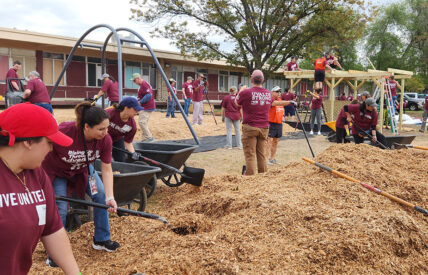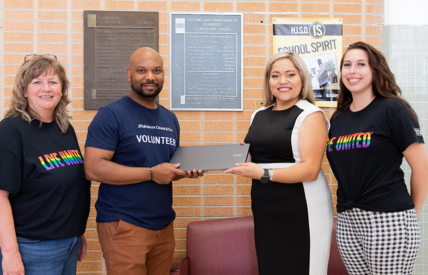
When things are strained in the classroom, both the student and the teacher lose. That’s what happened to “Rose” and “Mr. Barrera.”
Following an incident in the classroom one day, both became frustrated. However, “Mary” from Empower House (formerly Martinez Street Women’s Center) helped bridge the gap.
As a United Way Successful Students Impact Council partner, Empower House provides community health services and education, advocacy opportunities, and youth programming through the lens of restorative justice.
Because students are more likely to be engaged in the classroom and motivated to learn when they trust that their teacher will provide comfort, encouragement and emotional support; Mary hoped to build better understanding between the two individuals.
As the three of them came together, Rose was able to articulate how Mr. Barrera could better engage her with his lessons. She also shared some of her personal challenges at home. Both student and teacher apologized for any harm they had done and set agreements for communicating with one another going forward.
Mr. Barrera expressed his appreciation for the opportunity to speak with Rose to work on restorative practices, identify her personal learning style and support her school engagement.
Empower House’s staff was encouraged by the positive change in the student’s behavior as a result of Mary’s listening to Rose and facilitating the mediation with Mr. Barrera.
Supportive teacher-student relationships are important. If youth are struggling at home, having a positive relationship with their teacher encourages them to develop better social-emotional skills, learn more academic content, have higher test scores and better grades. They are less likely to be retained in grade or referred for remedial education. If the teacher-child relationship is perceived as unsupportive or negative, it may lead children to disengage from classroom instruction and reduce their interactions with others.
For children from low-income households, and children of color in particular, their teacher relationship could be particularly critical in ensuring they have equitable learning opportunities, especially as expectations and demands from teachers increase over time.1
Many qualities define a positive relationship and pave ways on how to create powerful student teacher relationships, including good communication, a safe learning environment, mutual respect, a positive and patient attitude, student equality and timely praise.
Thanks to Mary’s mediation, Rose and Mr. Barrera forged a positive relationship enabling them to listen to one another, combine their skills and talents, and successfully create something greater than the sum of their parts.
Over the years, Empower House has served thousands of individuals in San Antonio and impacted future generations of students and families.
1https://earlylearningnetwork.unl.edu/2019/05/20/teacher-child-relationships/
|
Categories: Uncategorized Tags: Impact Areas |





